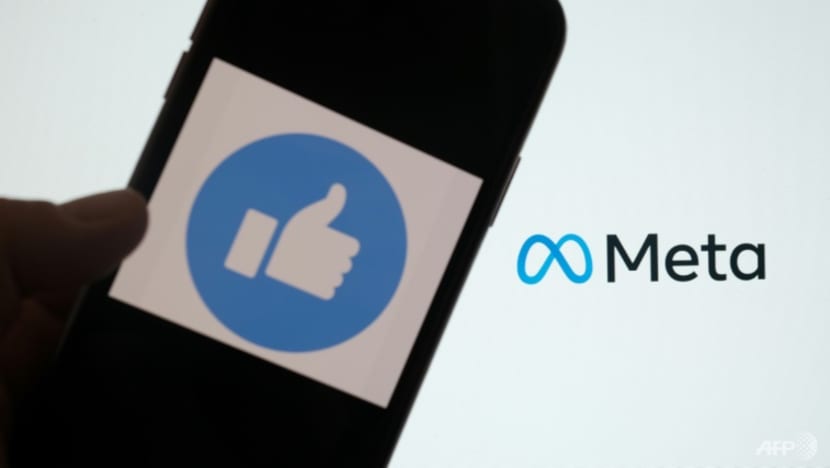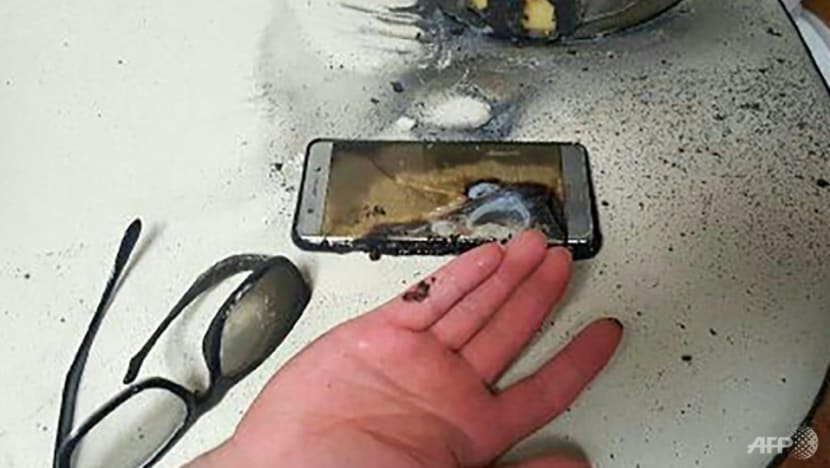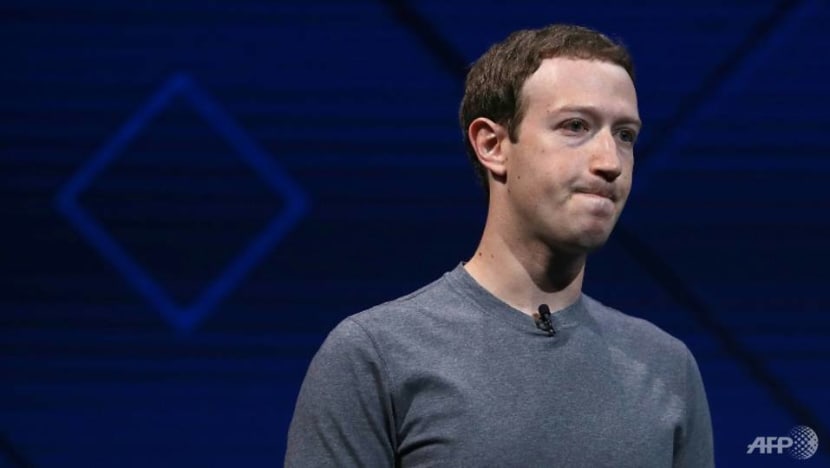Commentary: Facebook baggage may fuel public mistrust of Meta
Facebook wants to rebrand itself. But public outrage is likely to form if consumers believe that the damage caused is due to the company’s pursuit of profits, say two professors.

Facebook parent Meta. (File photo: AFP/Chris DELMAS)
TOULOUSE, France: At the end of 2021, Facebook experienced the perfect storm.
On Oct 4, 2021, the company’s services experienced an outage that lasted six hours during which 2.9 billion users were not able to access Facebook, Instagram, WhatsApp, and Oculus due to a technical error.
The estimated loss to the global economy was estimated at almost US$1 billion, or US$150 million per hour.
At the same time, another crisis was rapidly picking up pace. On Oct 1, 2021, the Wall Street Journal published “The Facebook Files”, a collection of leaked documents that provide rare insight into the inner workings of the organisation and the findings of its internal research.
The documents suggest that Facebook is aware of the ill effects its services have, but does little to fix them. Facebook’s own internal research found that Instagram harms teens’ mental health and contributes to eating disorders and suicidal thoughts.
On Oct 5, 2021, just one day after the global outage, Frances Haugen, the whistle-blower behind the leaked documents, appeared before US congress and stated that Facebook prioritises growth over safety.
Two crises at a time, calling Facebook’s ability and morality into question. But will these corporate crises hurt the company long-term? And if so, how much and in what ways?
THE AFTERMATH OF CORPORATE CRISES
Corporate crises can result in severe retaliation against the companies at fault.
Consumers may spread negative information about the company on social media, shun the brand, or boycott the company’s products.
Whether consumers will seek revenge depends in part on whether the crisis calls a company’s ability or morality into question.
In 2016, Samsung suspended sales of the Galaxy Note 7 and announced a global recall after it was found that a manufacturing defect in the phones’ batteries had caused some of them to generate excessive heat, resulting in fires and explosions.
The scandal affected consumers’ perceptions about the safety of their smartphones and caused the company to lose billions in value in the stock market.
But the problem with Samsung Galaxy Note 7 did not largely affect customer trust in the brand and nearly nine out of 10 existing customers said they would consider a Samsung phone for their next purchase just a few months after the scandal.
This was partly because it was seen as a crisis of ability rather than morality.

By contrast, when Volkswagen was caught cheating on emissions testing, making its diesel cars appear up to 40 times less polluting than they actually were, the German company was not just hit by social media firestorms and long-running boycott campaigns, but also recorded its first annual loss in more than 20 years.
Years later, Volkswagen emissions damages are still rolling in. Because it relates to a perceived ethical lapse, this crisis was seen as a moral failing.
But another factor seems influence how the public reacts to a corporate crisis: A company’s country of origin. During “dieselgate”, for example, the words “German” and “Germany” were among the five most frequently used words relating to the scandal on Twitter.
As these searches make clear, Volkswagen is closely associated with Germany. South Korean Samsung, on the other hand, is frequently misclassified as Japanese.
Our new research adds to existing evidence which shows that where a company comes from can influence how consumers react to corporate crises.
WARM AND COLD COUNTRIES
The basic premise is that a company’s country of origin can evoke certain stereotypes. That is, the associations of brands with countries, for example, Facebook and the United States or Volkswagen and Germany, activate national stereotypes.
Previous research has shown that consumers stereotype countries in terms of two dimensions: Warmth and competence.
Related:
Countries consumers perceive as friendly, cooperative, and trustworthy are considered “warm”, while “cold” countries are viewed as having antagonistic, competitive intentions.
Meanwhile, countries consumers perceive as powerful and capable of acting on their intentions are considered “competent” or “incompetent,” if they are not.
Consumers extend the warmth and competence they associate with a particular country to the companies that come from that country.
This “country-company” halo effect is something we regularly see in non-crisis settings, in which we blindly believe in the superior quality of French wine, Swiss chocolate, and German cars, simply based on their origins.
Using several experiments, our research tested the presumed psychological process of this effect in times of crisis.
We found that consumers’ negative emotional responses (such as contempt, anger and disgust) and their intention to retaliate against the wrong-doing company (for example, through a boycott) depend on their perception of corporate greed.
Put simply, public outrage is likely to form only if consumers believe that the damage caused is due to the company’s pursuit of profits.

Country stereotypes matter in this psychological process because consumers may rely on them to make inferences about the company’s underlying intentions.
We found that perceived country warmth can lead consumers to discount negative information about any potential greedy intentions, which in turn prevents negative emotions and retaliation.
But the buffering effect of country warmth is limited to corporate ability crises. Negative information that calls the company’s adherence to moral norms into question is harder to discount, no matter the country stereotype.
Our findings indicate that a warm country-of-origin acts as an “insurance policy” for companies from that country against the unfavourable consequences of a crisis.
Companies should be aware of this effect and have a clear understanding of the extent to which consumers associate their brand with a specific country, and the extent to which they perceive that country as warm, friendly and trustworthy.
The public condemns companies more when they violate ethical standards than when their professional competence is at issue.
If consumers perceive a crisis to be morally concerning, the buffering effect of country warmth vanishes and can no longer prevent the company from consumers’ potential retaliatory actions, like negative word-of-mouth or boycotting.
So, what could this mean for Facebook in 2022? In late 2021, Facebook rebranded itself as Meta, reflecting the company’s reorientation toward virtual reality.
These rebranding efforts may also help to leave behind the bad press surrounding Facebook.
Whether Meta really starts with a clean slate or carries the baggage of the past remains to be seen. Certainly, the public will keep a close eye on it.
Timo Mandler and Camilla Barbarossa are professors in marketing at TBS Business School. This commentary first appeared on The Conversation.




















